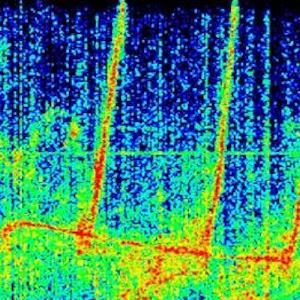Typically we see a pianist, guitarist, drummer or any instrumentalist or composer take up a musical instrument, in order to perform, compose or just practice. Be it alone or in a group. It's a given. Way back in 1952, John Cage, composer and music visionary decided to do things the other way round. He simply closed the lid of his piano in order to compose. John Cage was envisioning something extraordinary. The birth of 'Chance Music'. His conceptual approach manifested as a composition titled 4'33" which did not contain any musical notes, structures nor traditional instruments. Hindsight, over the decades many scholars, critics and composers speak of 4'33" as 'a paradigm shift' of sorts. Can we compose or perform music without playing our instrument(s)? Yes we can. Read on, but first, 'Free your mind' and the rest will follow'...
In essence, John Cage closed the lid of his piano, sat down for 4 minutes 33 seconds, to hear the sounds occurring naturally around him. He was harnessing the present, as his sonic canvas. Hence as a composition (or concept) 4'33" would turn out differently every time. He did this at home, in the studio, with peers and eventually in the concert hall in front of an audience. Obviously Cage wanted to step out of the norms, harnessing sounds which occurs outside 'predetermined spheres and structures'. No place is really silent and every environment provides a distinct yet continuous audio canvas. Be it in your studio, or in the bathroom, or kitchen or the park in your neighbourhood or the street outside your house. Cage proposed that all spaces provide innate (naturally occurring) sounds which form a distinct, one time composition, if only we are willing to listen. But is that music? What we refer loosely as 'ambient sound'. But not ambient music, as per Brian Eno's definition. "There is no such thing as pure silence. Get inside an anechoic chamber and you begin to hear (and feel) your nervous system in operation and the blood and heartbeat in motion" Why does Cage want us to listen to freely occurring sounds? In the first place, he opposes the valorisation of traditional musical works and doubts their continuing interest in the future. He asked "why do we perform a given composition again and again? I agree with the African prince who went to a classical concert in London, and later was asked what he thought of the said Bach composition : his response, however odd was totally valid - Why do the musicians play the same piece over and over again, that too in the same way? Are they not bored of it yet?" Secondly, Cage felt that once we have composed or learned a piece of music, performing it again and again has little progressive value or room for contemplation or new feelings. A Bach fugue or a Beethoven sonata or a Michael Jackson anthem in essence does not transcend, does not change, even if we perform the given compositions with different instruments, personas or in varying environments. What changes is the social response, the reception and the outward appearance.Expanding the audible sphere.
As composers, we are always attending to sounds, beats and melodies which are fabricated via instruments, be they real or virtual, be they organised or randomised, yet always inside a confined and imaginary space. Now imagination need not be bound in organisation. Many accomplished musicians consider outside elements as 'noise' (elements unwanted). It's a bit stale come to think of it. Underpinning this attitude is an opposition to the manner in which we react to structures or expressiveness in music. Cage was challenging that condition, as well as expanding the listening sphere. On what we hear, thereby preventing ourselves from hearing the music that is present around us. Sounds occurring in the universe without us having to play notes or instruments. Consequently the obvious question that beckons us - Why perform with instruments or even stick to the given structures, notes, chords, time-signatures and even genres? Cage explains further "Because I think music should be free of the feelings and ideas of the composer, I have felt and hoped to have led other people to feel that the sounds of their environment constitute a music which is more interesting than the music which they would hear in a concert hall or a record or from the radio" Cage's intention was to show that recorded or written music, however beautiful, emotional or nostalgic, is static in nature and form.
"If this is what music is .. I can write it and so can you..."
There are at least two different ways to view 4’33” — as consisting of a passage of silence or as comprised of whatever sounds occur during the period. There is no absolute silence in the universe (just depends if we have the capacity to listen and to absorb). When musical works are played, extraneous noises are always likely to intrude. Be it car horns or sirens howling in the distance, jet-planes rumbling overhead, people shifting, coughing, chairs squeaking or beeping phones. All of these sounds, and more, might be heard during a performance of Beethoven’s Fifth Symphony but none belong to it. Majority of composers back then or even today would want to eradicate (or ignore) all such naturally occurring sounds. When asked how one is supposed to perceive 4'33" in different situations and with different composers, Cage's response is rather lucid as "This content will vary from performance to performance. All noises at a performance are to be regarded as belonging to that performance provided they fall within its temporal boundaries. We cannot simply disregard sounds outside music as noise"
Chance Music in the 21st century
Over the decades since John Cage created the concept of 'Chance Music' many contemporary musicians and composers have attempted to expand the idea, manifesting mostly as abstract and or conceptual pieces. Some have argued endlessly weather it can be classified as music at all. The manifestations of this concept and thought seem limitless. Also heckling the old ways of listening and performing. Stephen Davies, Philosophy, University of Auckland, proposes an outlandish idea inspired by 4'33". "Imagine a fugue written for a synthesizer. As synthesizers are capable of producing frequencies beyond our audible range - Lets assume its lowest note is at 30,000 Hertz, well above the range of human ears. Also, consider a piece of about 300 measures in time. In most respects the work is ordinary, but the tempo is indicated as - whole note = 1 year (each quarter note for every three months). At this rate, the composition can last for three centuries" Preposterous huh? Not really. As we expand our perception of time, instrumentation and an outcome which is continuos. Work in progress, but forever. A musical piece which carries over generations without an eminent end. 4'33" had indeed opened up out-of-this-world possibilities. "Modular synthesizers using very slow oscillators (down to 1Hertz divided) leads to bizarre possibilities, wherein it's impossible to predict the outcome over a long stretch of time. However, we cannot classify these as compositions, rather as temporal passages of sound evolving on their own" said Don Buchla (pioneer of voltage controlled modular synthesis). Even as such ideas come across as utopian initially, various conceptual artists and curators have built innovative art projects inspired by 4'33" such as the 'As Slow As Possible', a concert which will last 600+ years!
Free your mind' and the rest will follow!
We doubt that modern music can be distinguished from it's ancestral roots once we leave the structural norms and qualities of what is perceived as music. Contemporary music norms just about touch a fraction of the sonic possibilities, as a vast expanse remains unexplored or yet to be felt. What could be more modern than a work of silence (and restraint) because sound is already everywhere. The “conceptual” is as unavailable to the senses as is the supposed “pure”. John Cage’s 4'33" is not a silent gimmick, for many more reasons other than the ones he gives. Chance Music is heckling our conditioning for sure. Chance Music is inherently structure-imputing, and Cage’s recommendation is that we should perceive music and sound impersonally, aconceptually, while rejecting appearances of organisation, complexity and tradition. Try it - next time you sit down to compose or to jam, ask yourself, 'what can I bring into this universe' other than filling space with predestined methods stacking up sounds upon sounds... Ready to try your own 4'33" ?































0 -